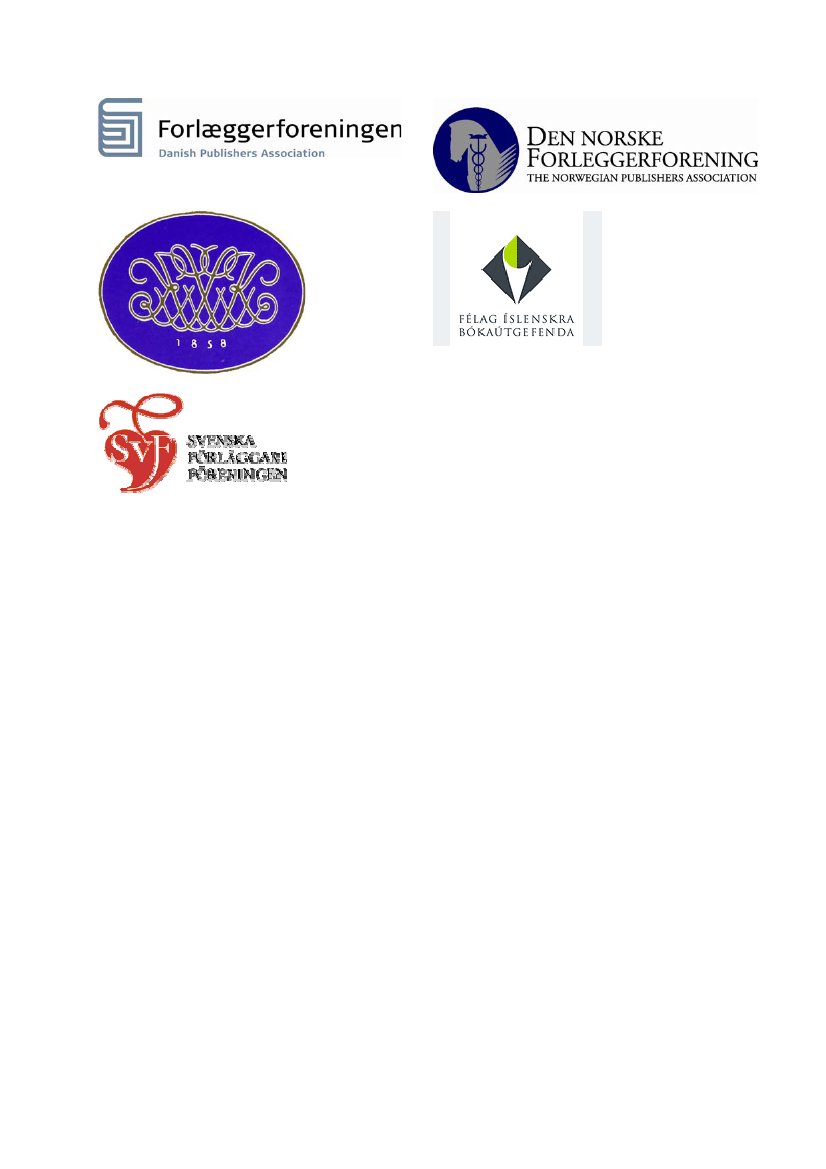Europaudvalget 2008-09
EUU Alm.del Bilag 450
Offentligt
Oslo, May 27, 2009
THE GOOGLE SETTLEMENT
Google has under the Google Book Search program scanned and digitalized European bookswithout permission from European rights holders. Pursuant to European copyright law, arights holder must consent before a copy is made. The Google settlement renders illusoryEuropean rights holders’ right to control publishing of their own books.Although Nordic Publishers Associations acknowledge that the Google settlement has beenestablished through negotiations between American authors (through The Authors Guild) andAmerican publishers (through The Association of American Publishers) and Google, theassociations are vehemently against the fact that the Google settlement binds Nordic rightsholders who have not been represented in the settlement negotiations. The Nordic PublishersAssociations claim that the settlement should be limited to works primarily published in theUS.If rights holders do not actively opt out of the settlement agreement, they are bound by anagreement that requires an enormous level of administration. It does not help matters that thenumber of books included is not fixed, but only limited to books published prior to January 5,2009 anywhere in the world. It is therefore impossible for a Nordic publisher to predict howmany of its books Google will scan and pay for, or, basically, what the agreement will meanfor that particular publisher.The sudden flux of books available to Google, including millions of European books, shouldinexorably tilt the competition in favour of Google Book Search. This is a fact for Google’scommercial competitors, and US Antitrust Authorities examine therefore the problem. Thesettlement agreement will also have a negative impact on less commercial, nationaldigitalization initiatives under the auspices of the EU Europeana library project. Google, by’taking the law into one’s own hands’, may damage this important digitalization work thattakes place in numerous European countries.If rights holders exercise their right to withdraw from the settlement before the due date ofSeptember 4, 2009, they will not be able to remove books from the Google database. AsGoogle is likely to continue to exploit all books published before January 5, 2009, includingbooks of a rights holder who opts out of the settlement, rights holders who opt-out willeffectively loose control over their books. Due to this unreasonable effect of the settlementagreement, Nordic publishers are caught in a Catch 22 and the likely scenario is that mostpublishers probably will stay in the settlement in order to protect their rights and interests.Opting-out of the settlement agreement would leave them in an even worse situation withoutany defence against Google’s unsolicited use. Publishers who stay in the settlement will havea right to remove their books from the Google database. Efficient service to guide publisherson how to remove books pursuant to the settlement agreement is likely to be established.As much as Nordic publishers embrace modern technology and look forward to the comingdigitalization of our valuable literature, the Nordic Publishers Associations protest against theGoogle settlement agreement as it violates European rights holders basic copyright, and it isdetrimental to Nordic literature. Who should decide how a Nordic book should be distributeddigitally in the US? Google, a private commercial company, who has not asked forpermission, or the author and the publisher who have created the book?
The Swedish Publishers’ Association
The Finnish Book Publishers Association
Director Kristina Ahlinder
Director Sakari Laiho
The Icelandic Association
The Danish Publishers Association
Director Benedikt Kristjánsson
Director Marie Svane
The Norwegian Publishers Association
Director Per Christian Opsahl


